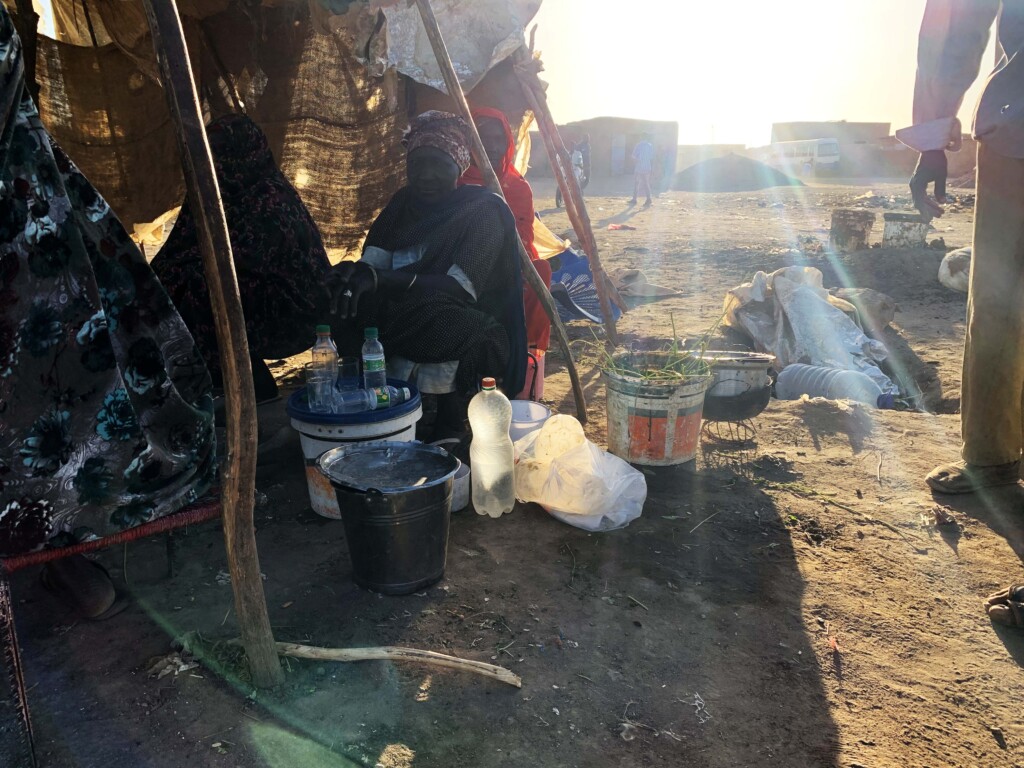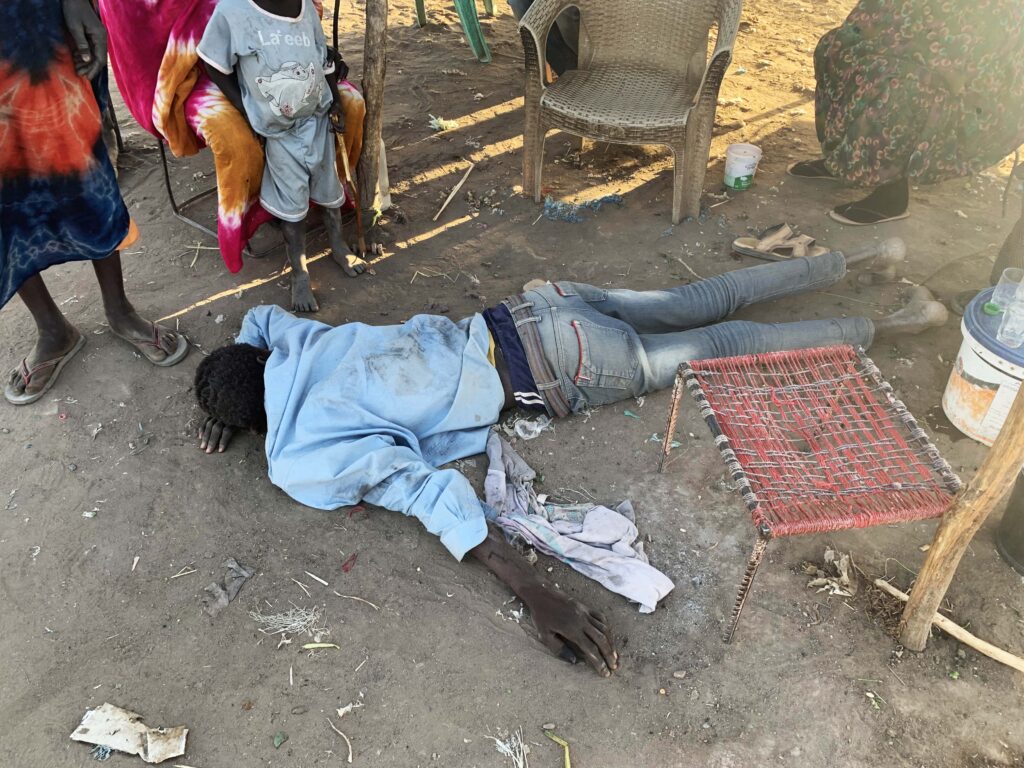Moonshine, misery, and the maltreatment of Sudan’s desperate displaced distillers

Displaced women sell Sudan’s notorious locally distilled ‘gin’ called aragi in the Khartoum district of Soba El Aradi (Photo: Amgad Abdelgadir / RD)
KHARTOUM –
Text and pictures by Amgad Abdelgadir
The abundance of dates in Sudan has long served as a staple in Muslim ceremony and illicitly, as the main ingredient in the production of ‘moonshine’ liquor. Sudan’s reputation for the notorious locally distilled ‘gin’ called aragi, has been a source of fascination to outsiders. Displaced women produce it at their peril, in defiance of years of Islamic governance outlawing the production and sale of alcohol. Yet, beneath the surface of this open secret lies a far more sinister reality, one in which the state has effectively engaged in the systematic and institutional persecution of vulnerable displaced women.
Women charged under laws against the production of liquor make up “at least 80 per cent of Sudan’s female prison population,” says human rights lawyer and activist Abbas Mahjoub Hasan. In the many instances where he has represented women charged with liquor offences, he recounts how their cases are often only brought to his attention by volunteer advocates “happening to meet them outside the courts before their trial”.
Hasan states that, in some cases, family members may have a basic understanding of their right to legal representation, and “will ask advocates to represent them”. However, these trials are usually rushed same-day affairs, and as well as being denied legal aid and representation, the defendants are often “served severely unjust penalties, which do not reflect the severity of their violations”.
He asserts that while these women may be in violation of the law, the state bears the brunt of wrongdoing, as they “deny these women their most basic right to a free and fair trial”.
Whenever Hasan gets the chance to represent these women, all of their cases are undertaken on a pro-bono basis, adding that he “pays their fines out of his own pocket”.
According to the lawyer, these cases should be evaluated and adjudicated upon, taking their cultural and religious differences into account. Hasan added that the state “fails to guarantee their access to healthcare and education, as well not granting them any semblance of safety”.
Social impact
Many questions concerning Sudan’s tumultuous legacy with aragi and the women producing it have largely been forgotten. Despite the sometimes poisonous* date gin, the unquestionable impact forcing these women to sustain their families amidst the economic stranglehold in the region, in spite of persecution and weekly shakedowns from authorities, paints a sympathetic portrait of desperation.
In an interview with a group of distillers at an andaya (a place where liquor is produced and sold) in the south-eastern Khartoum district of Soba El Aradi, they recounted their distresses. Soba El Aradi is a mere 10 minutes away from the relatively affluent area of El Azhari, however the stark disparity in living conditions is immediately obvious.

At the edge of the shanty town, groups of producers and drinkers congregate in what seemed like a marketplace. The andaya was nothing more than a tattered cloth propped up by sticks in this case. Repurposed soft drink bottles filled with the pale opaque aragi surrounded the sellers. A group of men sitting near the sellers, and sipping out of yoghurt pots, seem oblivious to a man passed out on the ground no less than a metre in front of them.
What strikes one even more however, were the teenagers that could be seen drinking at the next andaya over. A self-perpetuating spiral of despair played out in real time; children played football in close proximity to the teenagers drinking, only a stone’s throw away from the adults in various states of drunken stupor. The aragi seller’s livelihood posed a damaging economic irony. In selling liquor to the shanty’s teens to make an income, their business-model inherently reinforces a continuity, one that would concur in their children falling victim to an endemically degenerative cycle.
One of the producers states that she settled in Soba El Aradi more than 10 years ago, after fleeing from civil war in South Sudan. She said, rather laconically, that since coming to Khartoum, her situation was just as bad and now she has no way of returning home. Authorities reportedly raided her the day before, seizing nearly SDG40,000 worth of aragi and the equipment utilised for its production. Locals in the community indicated that the impounded contraband equipment is “often always resold to the bootleggers in the local markets”.
Another South Sudanese displaced moonshiner shared her harrowing experiences with the law, stating that the authorities reportedly entered her home and stole anything of value they could find. They reportedly blackmailed the woman, saying if “she had nothing to bribe them with, she would be arrested immediately”. She, much like the aragi-peddler before her, underlined how hopeless her situation is, saying that producing the moonshine is her only means of feeding her children.
In a field report conducted by the Sudan Democracy First Group in 2015 to highlight the scope of day-to-day corruption, they stated that since the Sudanese Criminal Act of 1991, corrupt legal procedures flourished instead of eradicating the production and sale of alcohol. The activist group’s report stated that more should be done through local and foreign organisations in supporting the poor with finding alternative means for a decent livelihood.
Their report recommended that the Sudanese police force should provide the necessary attention to the anti-bootlegging raids, by developing strict administrative control to ensure integrity.
However, almost seven years on from their report, it is apparent there is not much in the way of progress.
* While the alcohol contained in commercially distilled liquor is ethanol (or ethyl alcohol), home-distilled liquor often also contains high levels of toxic methanol (or methyl alcohol), which can cause blindness and death.











 and then
and then